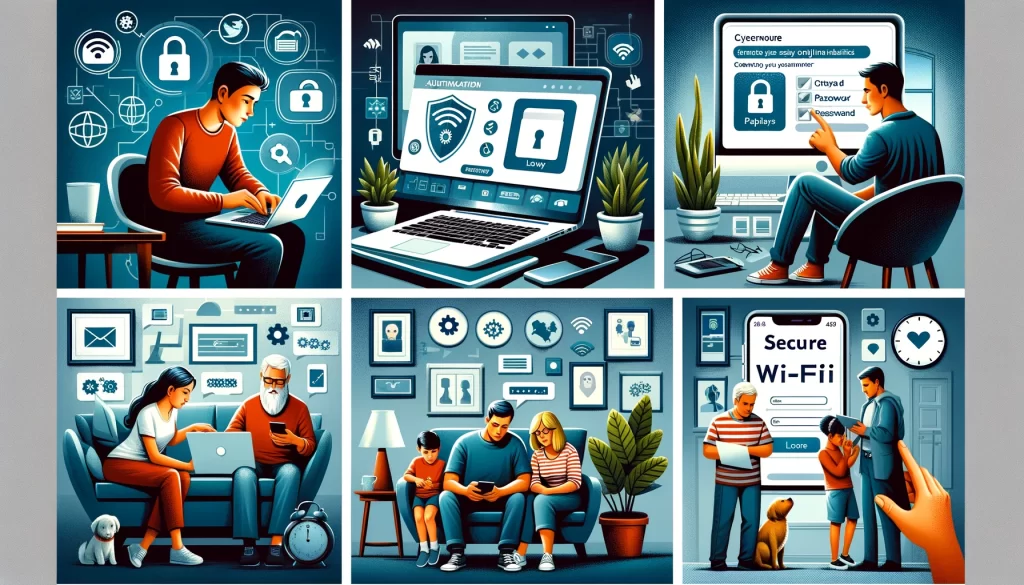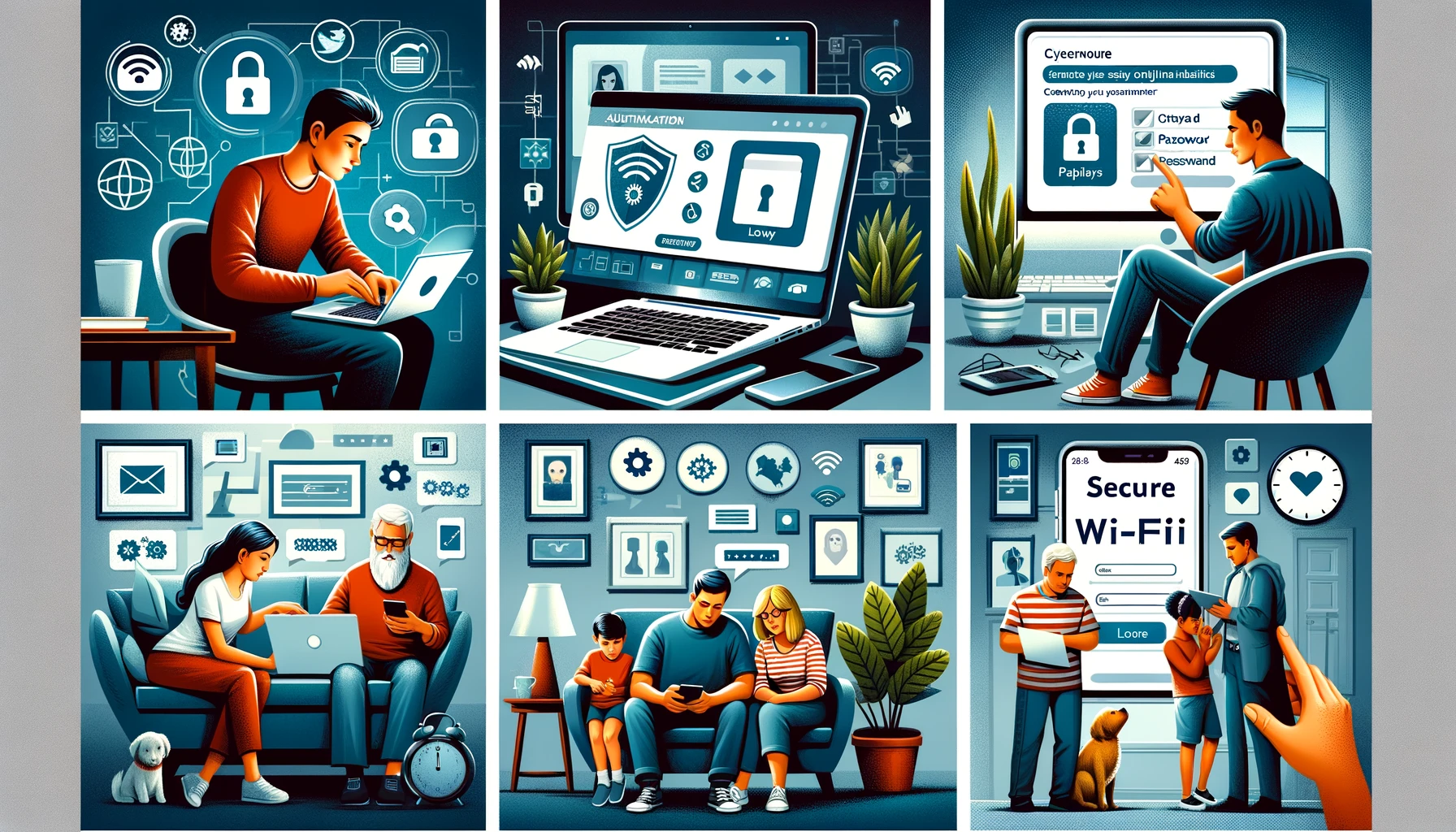Introduction
In today’s interconnected world, the importance of securing your online identity cannot be overstated. As we move into 2024, the digital landscape continues to evolve, bringing both new technologies and new threats. Recent statistics show that cyber threats and identity theft are not only becoming more frequent but also more sophisticated.
Understanding Your Online Identity
What is Online Identity?
Your online identity is essentially a digital footprint of your personal data that exists because of your internet activities. This includes details like your name, address, social security number, and more personal data like browsing habits and social media activity. Cybercriminals target these pieces of information through various means, aiming to commit fraud or theft.
The Value of Your Digital Persona
The risks associated with identity theft are immense, impacting both your economic stability and personal well-being. Identity theft can lead to significant financial loss, damage to your credit score, and a long, complicated recovery process. Real-life cases highlight individuals facing unauthorized loans, emptied bank accounts, and years of legal battles to reclaim their identities.
Key Threats to Your Online Identity in 2024
Phishing Attacks
Phishing has become increasingly complex in 2024, with cybercriminals employing tactics that are harder to detect. They often mimic legitimate communications from banks or trusted institutions to steal personal information. Recognizing these can be challenging, but knowledge and attentiveness are key defenses.
Malware and Ransomware
Malware aimed at stealing personal data can infect your devices through deceptive links or compromised software. Ransomware, a type of malware that locks you out of your devices until a ransom is paid, has seen a rise in cases, particularly targeting individuals with poor security practices.
Social Engineering Tactics
Social engineering involves manipulating individuals into divulging confidential information. In 2024, these tactics have become more refined, exploiting human psychology and situational contexts to trick victims into making security mistakes.
Comprehensive Cybersecurity Practices for Individuals
Strong Password Policies
One fundamental aspect of protecting your online identity is the use of strong, unique passwords for each of your accounts. Password managers can assist by securely storing complex passwords, reducing the burden of memorization.
Multi-Factor Authentication (MFA)
MFA adds an additional layer of security by requiring two or more verification methods to gain access to your online accounts, significantly enhancing security by combining something you know (a password) with something you have (a device for a verification code).
Advanced Tools and Techniques to Protect Your Online Identity
Using VPNs for Enhanced Security
A Virtual Private Network (VPN) helps protect your internet connection and privacy by creating a secure and encrypted connection to another network over the Internet. This is especially useful when using public Wi-Fi networks, which are often not secure.
Secure Wi-Fi Use and Best Practices
Using public Wi-Fi can expose you to security risks, such as the interception of the data you transmit online. Always ensure the network is secure and avoid conducting sensitive transactions over public networks.
Regular Monitoring and Maintenance of Your Digital Footprint
Regular Security Audits
Conducting regular security audits of your digital accounts can help detect potential vulnerabilities. Tools like security scanners can assess your online security posture and suggest improvements.
Updates and Patch Management
Keeping your software updated is crucial in protecting against known vulnerabilities. Regular updates help protect your devices from attacks that exploit outdated software.
Legal Protection and Remedies Against Identity Theft
Understanding Your Rights
In the event of a data breach or identity theft, knowing your legal rights is essential. This knowledge can guide you through the proper channels for reporting and resolving these issues.
Recovery Steps After Identity Theft
If you fall victim to identity theft, it’s crucial to act quickly. Steps include contacting your financial institutions, filing a report with the Federal Trade Commission (FTC), and alerting the national credit bureaus.
Educating Yourself and Others About Cybersecurity
Stay Informed on the Latest Cybersecurity Trends
Keeping up-to-date with the latest in cybersecurity through reliable sources can help you stay ahead of potential threats. This ongoing education is vital in adapting to the ever-changing cyber threat landscape.
Spreading Awareness
Educating those around you about the risks and preventive measures can help build a community-wide defense against cyber threats. Local community programs and online resources can offer valuable information to share.

FAQs
- What are the first steps I should take if I suspect my online identity has been compromised? Immediate steps include changing your passwords, alerting your financial institutions, and monitoring your accounts closely for any unauthorized activity.
- How often should I change my passwords, and why? It’s advisable to change your passwords every three to six months to help prevent unauthorized access, especially for accounts related to sensitive information.
- What is the most common mistake people make regarding online security? The most common mistake is using the same password across multiple accounts, which can allow a single breach to compromise several of your accounts.
- Are paid VPNs worth the investment for cybersecurity? Paid VPNs generally offer more reliability and security than free versions, making them a worthwhile investment for those serious about protecting their online privacy.
- How can I tell if an email is from a phishing attempt? Look for signs like poor grammar, urgent language urging immediate action, and sender addresses that don’t match the organization they claim to represent.
- What are some quick checks I can do to ensure my online accounts are secure? Regular checks include reviewing account settings, updating passwords, and activating MFA wherever possible.
Conclusion
As we continue to navigate the complexities of the digital world in 2024, securing our online identities must be a top priority. By adopting comprehensive cybersecurity practices, staying informed, and spreading awareness, we can protect ourselves and our communities from the growing threats of cybercrime.

